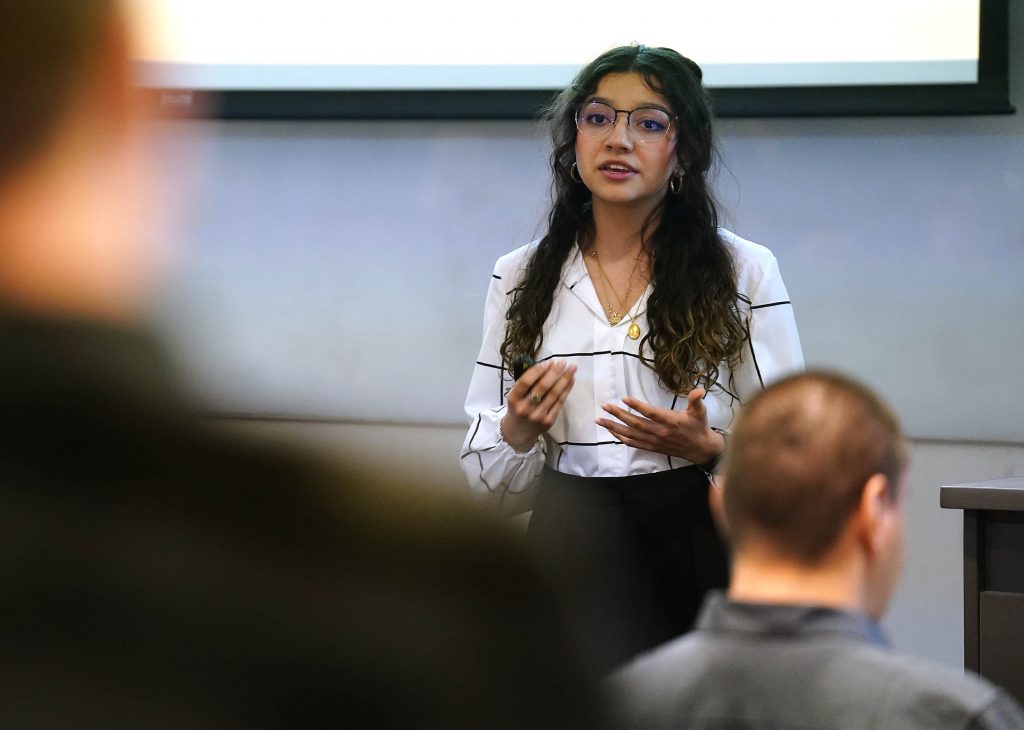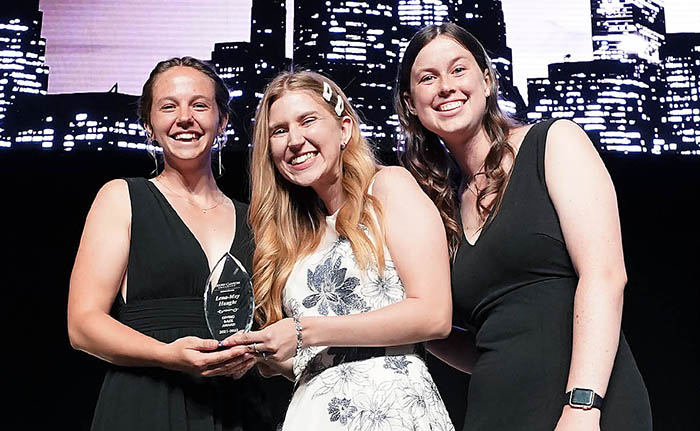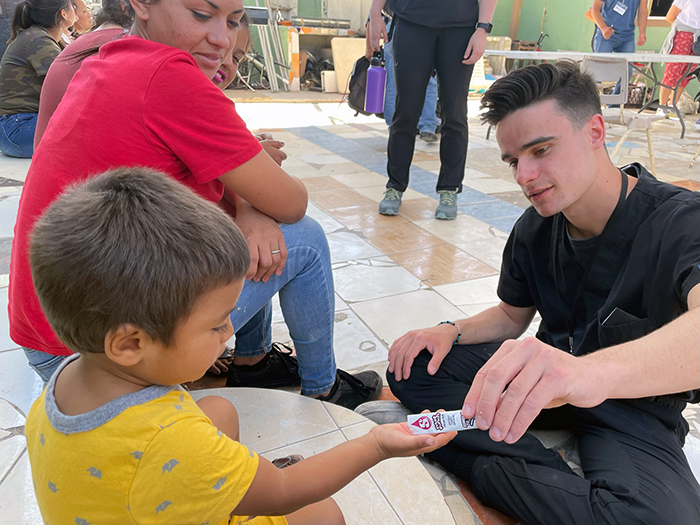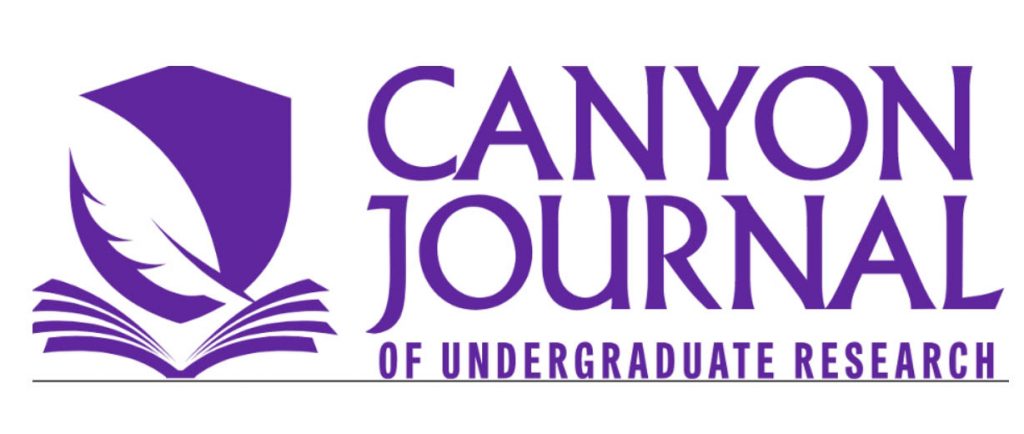
Daniela Chavira possessed a strong passion in submitting her work for publication while pursuing a bachelor’s degree in psychology.
That opportunity came quickly for Chavira, almost too soon for her and other undergraduate students who took advantage of Grand Canyon University’s first Canyon Journal of Undergraduate Research (CJUR) before the end of her spring semester.

“We had to keep the students on a tight timeline and really motivate and encourage them to meet these deadlines so they could be prepared for this first publication,” said GCU Honors College Dean Dr. Breanna Naegeli.
“And this is something that they’re doing completely voluntarily on their own. It’s not a requirement of any course. It’s not a requirement for graduation. We’re asking them to produce their manuscripts, edit their manuscripts, re-submit for a second preview (of peer reviews), and we’re asking them to do this at midterms, finals week, and graduation around the corner.”
CJUR represents the latest of five academic journals produced by GCU, which is committed to "the publication of exemplary faculty-mentored and peer-reviewed research produced by undergraduate students at Grand Canyon University (GCU) aligned with the Boyer Model of Scholarship," according to Dr. Scott W. Greenberger, Assistant Vice President for Research and Grants.
The journals are scheduled to be published at the end of June.
"I also think having this fifth journal is important as it helps to highlight the projects and research taking place every day by undergraduate students on our campus," said Katalina Inzunza Herrera, part member of the Advisory Editorial Board. "It highlights the interdisciplinary collaboration that occurs in and outside the classroom, and it provides our students with the opportunity to submit manuscripts that can potentially allow them to become published in an academic journal as undergraduates.
"This can be incredibly helpful to students looking to apply to graduate or medical schools and can be a great resume builder. This journal also provides our students with the opportunity to share their research and findings with a larger audience."

Chavira received only two hours’ sleep after taking her last final examination for the spring semester because she was putting the final touches on her heavily edited manuscript that was submitted the following morning, hours before moving out of her dormitory room with the assistance of her father.
Her finished product was titled: "Supporting Our Most Vulnerable First-Gen Students: The Role of Immigration Status in the Pursuit of Higher Education."
“It was personal to me,” said Chavira, a first-generation college student.
Twenty-four GCU undergrad students enrolled in a class in the fall and spring semesters to prepare them for the requirements and demands of writing a 20-page journal for submission, such as researching and writing effectively on the topic, and understanding the review and publication processes.
This really gave the students an opportunity to be the primary investigator, the primary researcher, the primary author in their own pieces.
Dr. Breanna Naegeli, Honors College Dean
CJUR received 14 journal submissions, and 11 were accepted for publication.
The review process can take up to six weeks before the editorial staff decides whether to reject, revise and resubmit or accept pending revisions, according to the program’s website.
A large majority of those students maintained a passion to write about their research and findings, and they weren’t tied exclusively to the Honors College. Submissions are sought from all GCU undergraduates.
“This really gave the students an opportunity to be the primary investigator, the primary researcher, the primary author in their own pieces,” Naegeli said. “A lot of our GCU students gravitated toward that. It does help boost their resume, their graduate school and medical school prospects. A lot of students understood the importance of that.”
Lena-May Haught, who earned her bachelor’s degree in sociology last fall, espoused the same sentiments after realizing a heavy volume of research was required to fortify her manuscript, titled: "For the Least of These: A Literature Review of Arizona State Child Maltreatment Laws and Policies"

“A lot of work went into it, but I thought it was worth it because I’m passionate about the project,” Haught said. “That research was important in our degree program at GCU, and it’s done me a lot of good to value that research and that academic component.”
Inzunza Herrera kept the students motivated, which became a challenge to some who wrote their manuscripts in the fall under the direction of four writing guides. That process often carried into the early part of the spring semester leading up to the journal application deadline in late February.
Those whose 20-page, double-spaced manuscripts were professionally edited and accepted for revision and submission often needed up to three months for final submission that coincided with the end of their academic year.
“It’s a lot of work for something that isn’t a requirement,” Naegeli said.
Naegeli cited Brian Durbin as an example. Durbin, who is scheduled to graduate this fall with a biology degree, took his Medical College Admissions Test (MCAT) one day before submitting his edited version of his manuscript, titled “A Student’s Dynamic Reflection on Intensive Undergraduate Research Experiences."

Durbin seeks acceptance at a top 25 medical school and believes the publishing experience can enhance his chances of getting into one of those elite programs, thanks in part to the feedback provided by Dr. Kelly Maguire and Naegeli that helped him sculpt his manuscript.
The notoriety of becoming a published author before earning his bachelor’s degree “would serve as a testament to the dedication and effort that I have invested into my studies over the past 3 ½ years,” Durbin said.
The fall course prepared the students for the editing, submitting, revising and deadline processes that they might not had been familiar with, Inzunza Herrera said.
“I feel really privileged,” Haught said. “I loved English and literature specifically. My major was sociology, and I got a lot of opportunities to do good work.”

Jenny Kuban, Managing Editor for CJUR and Program Manager for the Office of Research and Grants at GCU, played an instrumental role in assisting students to the finish line through the peer review process, and working with the marketing department for the final publication.
Chavira appreciated the support of her mentors at the Honors College that helped her navigate through a demanding time. Chavira believed her experience in working for a nonprofit organization that helped seven underserved high school students earn college scholarships enabled her to write passionately.
Furthermore, Chavira serves as a message that GCU’s undergraduate research program isn’t limited to the sciences or a STEM-only concept.
“If you look at research more as a point of engagement, and just experiences, and then how do we articulate those experiences?” Naegeli said. “So, for the undergraduate research journal, not every publication needs to be an empirical, robust experimental design.”
It's about building those rich academic experiences.
“It’s all about consistency and making sure there’s a wide variety,” Naegeli said. “We want to make this an opportunity for students to pursue researching in all its different forms.”
Based on her experience, Haught recommends that any prospective undergraduate considering a journal should perform his or her research before taking the class.
Haught is enrolled in the city of Scottsdale Police Academy and would like to work in a domestic violence/child abuse investigation department, concentrating on being a part of creating “positive changes” in the way Arizona laws and policies serve families and victims.
Meanwhile, as Chavira gains more experience, she’s determined to write more effectively after learning the APA style (used for journals and other academic documents) and elaborating on quotes and their meaning.
“I want to publish again,” Chavira said. “It will be less stressful.”
Here are GCU's other academic journals:
- Journal of Educators Online (first published in 2004)
- Journal of Instructional Research (first published in 2012)
- Journal of Biblical and Theological Studies (first published in 2016)
- Journal of Scholarly Engagement (first published in 2018)
Senior writer Mark Gonzales can be reached at [email protected]
***
Related content:
GCU News: TGen intern finds joy in research, Honors trips
GCU News: Students' passion projects on display at symposium















